Animal Rights: Top Ten Books
Any suggestion of any canon of prescribed required reading inevitably invites comments. Invariably, they are hostile and unforgiving. “You dared to include this book but omitted that one,” someone is bound to say. Nonetheless, it is knowing that brickbats and bouquets will no doubt come my way that I propose my Animal Rights Top Ten Books (well, eleven). I set myself the goal of identifying ten books and writing not more than 50 words about each one. They address such issues as ethics, issues, history and social movement dynamics. Here they are. Do you agree? Please let me know which titles would be yours.
1. Practical Ethics by Peter Singer
Read Practical Ethics and put Animal Liberation aside. This is the must-read book by Singer. Discover his understanding of utilitarianism and its application to moral issues, including our relationship with animals. I do not agree with everything but I understood more deeply how to live ethically in this world.
2. The Case for Animal Rights by Tom Regan
First attempts to read it failed. I persevered, making several attempts, focussing on particular chapters. I did not read the chapters sequentially. Then, it all made sense. I discovered Regan’s lucid and engaging writing style. The effort was worth it. I understand what moral rights for animals means.
3. Animals’ Rights by Henry Salt
Published originally in 1892. Revised in 1922. Timeless. Salt writes with quiet severity, demolishing rational and irrational reasons why we treat animals the way they did then and still do today. Plus, he situates animal rights within the progressive agenda of social change, which recognises simultaneously human and animal rights.
4. Nature Ethics by Marti Kheel
Starting with a discussion of four prominent eco-philosophers (Roosevelt, Leopold, Rolston, Fox) and finding them wanting, Kheel goes on to elaborate her theory for ecofeminism, which emphasises empathy and care for individual beings and populations. A thorough and compelling account for eco-holistic thinking, which incorporates animal rights.
5. Interbeing by Thich Nhat Hanh
Hanh is an internationally recognised practitioner of Engaged Buddhism, the intersection of social justice and Buddhist ethics. His fourteen guidelines for Engaged Buddhism, which are equally applicable to the practice of animal advocacy, helped me to become a more effective advocate for animals. They will for you, too.
6. The Animal Ethics Reader edited by Susan J. Armstrong and Richard G. Botzler (second edition)
 Of the increasing number of outstanding anthologies published about our relationship with animals, The Animal Ethics Reader stands out as the most comprehensive and thorough. Sections on animal ethics; pain, emotion and consciousness in animals; primates and cetaceans; animal use; religious perspectives; animal law; and animal activism.
Of the increasing number of outstanding anthologies published about our relationship with animals, The Animal Ethics Reader stands out as the most comprehensive and thorough. Sections on animal ethics; pain, emotion and consciousness in animals; primates and cetaceans; animal use; religious perspectives; animal law; and animal activism.
7. Animals & Ethics by Angus Taylor (third edition)
Taylor clearly and concisely takes us on a tour of animal ethics. An outstanding achievement becomes even more remarkable as he does not rely upon lengthy quotes from original sources. His ability to describe clearly and concisely different aspects of animal ethics and their relationship to each other is truly informative.
8/9. The Longest Struggle by Norm Phelps and Animal Rights by Hilda Kean
 These two histories of social change for animals respectively in the US and UK both excel in recounting the development of social thought and action for animals. The animal rights movement can not understand where it wants to go if it does not know how it got here.
These two histories of social change for animals respectively in the US and UK both excel in recounting the development of social thought and action for animals. The animal rights movement can not understand where it wants to go if it does not know how it got here.
10. The Art of Moral Protest by James M. Jasper
Jasper is a sociologist who studies social movements from a sympathetic perspective. He explores the culture, biography and creativity in social movements, including the animal rights movement. Reading this book gave deepened my understanding of the animal rights movement as a social movement.











